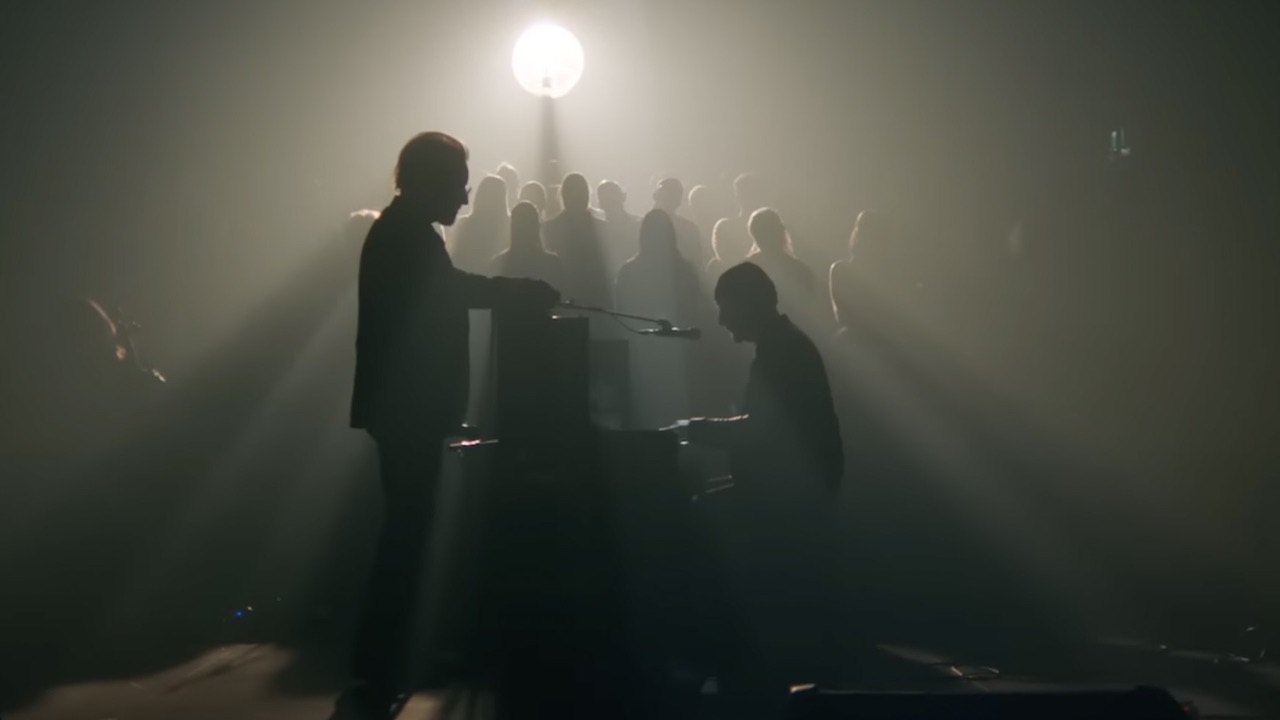
So divisive have U2 become over the four decades of their existence, that it can often be difficult to detach yourself from the reputation their most vocal detractors project onto them. Remembering why they became one of the biggest bands of all time, how they connected with so many people and reacquainting yourself with the unique alchemy of the time, place and personalities that created U2 is possibly the key reason why Bono & The Edge: A Sort of Homecoming, with David Letterman is such an essential watch for anyone interested in understanding an artist's creative process, whether you’re a fan of the band or not.
A Sort of Homecoming is far more than your typical retrospective look at the journey of a superstar band. It's a documentary that uses Dublin's biggest musical export to paint a portrait of the city over the last 50 years. The Irish capital's political, religious, socio-political and cultural changes are revisited both through the eyes of Bono and The Edge, and members of Dublin’s community from wildly varying perspectives, showing how U2 themselves have been adored, shunned and re-embraced by their homeland in the process.
It’s something of a masterstroke to have the film fronted by legendary US chat show host David Letterman, experiencing his first visit to the city. Letterman’s dry humour, ability to speak to all and sundry, and clear and genuine warmth toward his friends in the band ground a documentary that could have drifted too far into the pretension and grandeur that has often been U2’s Achilles heel. Rather than get too po-faced and serious, Letterman buys a cheese wheel, goes on a U2 walking tour - jokily demanding a hot meal at its climax - and meets a bunch of hardy early morning sea swimmers in between his chats with the band about their career and artistic vision.
His visit to see the band comes as Bono and The Edge are in the process of creating a reimagined set of songs for their recent Songs of Surrender album, taking 40 tracks and giving them a mostly acoustic makeover. It’s interesting to see just how deeply both men still care about pushing themselves and their music (in one scene The Edge reveals he has over 600 voice notes of new music on his phone), and there are some beautiful moments of performance in the film; seeing the pair surrounded by a group of local musicians (including Dermot Kennedy and Fontaines D.C.’s Grian Chatten) in a traditional Irish pub to jam through a traditional folk version of the sublime All I Want Is You is one of the most obvious highlights of the film.
But many of the really essential moments come as the band look back on their successes and how that intertwines with what was happening in their home country at the time. The scene with the pair reminiscing on the writing of Sunday Bloody Sunday is absolutely spine-tingling, and you can’t help but feel that they undermine it later when Bono says the version we hear on the new album is the song finally “finished”.
It’s also fascinating to see drag queen Panti Bliss speak about how Ireland becoming more accepting of its LGBTQ community, culminating in a bill to legalise same sex marriage in 2015, happened in tandem with U2’s vocal support of the movement. Seeing Bliss onstage in Ireland with U2 just after the bill was passed is a reminder that for all of the dismissive attitudes towards Bono’s supposed God-complex, (something he acknowledges his bandmates have had problems with during one section of the film) he and his band have helped progress some undeniable real-world changes for the better during their career.
In fact, both members of the band come across remarkably well here. Obviously relaxed enough to be open, honest and candid in their host's company, the film ends with the pair of them performing a song they have written as a tribute to the clearly moved Letterman. It’s a lovely gesture and a fine way to play us out.
It’s not all perfect; with so many achievements over the years it feels as if this is far from the definitive story of U2’s career and, although the intimate concert Bono and The Edge play throughout is interesting to witness, some of the new versions of these classic songs fall way short of the quality of their original incarnations. Regardless, A Sort of Homecoming is a humanising and fascinating look into the mechanics, personality and drive of one of the biggest bands of all time.







